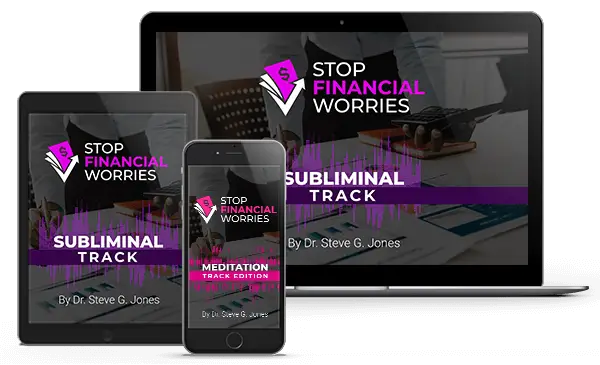Financial wellness. What does it mean, what are the signs of it and why is it important? Quite simply, it’s the ability to effectively manage your finances, both in the short-term and the long-term.
Do you think you’re financially well or not? Signs that you are, include being able to pay your bills each month, having enough money to cover the necessities, being able to afford healthcare, feeling secure in your current employment, being able to afford a healthy standard of living, feeling in control of your finances, and being able to save for retirement.
Perhaps the ultimate sign of financial wellness is that if you were to lose your job tomorrow or fall ill, you could survive three months without receiving a pay check. Just because someone has a higher income doesn’t mean they are necessarily enjoying financial wellness.
So, even low-income earners can create a semblance of financial wellness in order to manage their overall wellness and stress levels.
With all of that in mind, let’s look at 100 things that you can do to promote your own financial wellness.
Related: How to let go of Money-Related Stress, and get on the path to FINANCIAL FREEDOM. Learn more…
100 Things You Can Do To Promote Financial Wellness
1| Educate Yourself on the 401k
The majority of people want a 401k to invest in, but they just don’t understand how it works or ultimately, how it benefits them. So, the first step is to educate yourself on your options. You may find that your employer offers materials which can educate you to choose the correct option for you.
2| Financial Literacy
It’s up to you to educate yourself on personal finances, but there are plenty of apps and online resources that can help you improve your knowledge on the subject. That knowledge can empower you to make the right decisions and take control of your finances, which will bring you to a state of financial wellness.
3| Benefits
Have you ever stopped and really taken a look at the benefits that your employer offers you? So many people have no idea about the full range of benefits that they have available to them. You may be able to reassess your situation and choose the benefits that are more suitable for you, as well as your family.
4| Your Data Plan
It might be time to take a look at your cell phone usage. How much is your monthly bill? This goes for your internet connection and even your cable package. You might find that you can achieve a better deal, especially if you choose a package that includes most of these things.
Don’t just choose the largest package, take a look at what you really use. You have no idea how much money you throw away monthly paying for technology packages that you really don’t need.
5| Workshops
It could be through your employer or it might be at the local community center or college. Either way, if there are budgeting workshops on offer, please accept them.
While budgeting comes naturally to a lot of people, some of us could use the help. It can be difficult to determine where you can make cuts if you’re not sure what a budget should look like. Take the workshops on offer and learn how to effectively manage a budget.
6| Student Loans
Are you still carrying student loans? There are plenty of companies that work with employers to help make repayments on student loans. It is given as a benefit to the employee. Find out whether your future or current employer works with a loan assistance program.
7| Financial Coach
There aren’t many people on this planet that couldn’t benefit from a bit of guidance, especially from a financial coach. Not everyone is in a position financially to pay for one.
However, there are free resources online (nerdwallet or moneymanagement.com), you may also want to check with your employer. You may find that they provide advice.
8| Future Proof
We already mentioned the importance of benefits and retirement plans. It doesn’t matter how young you are, you have to consider the future. That means ensuring that you have insurance that covers disabilities and long-term care.
Think about your children’s future as well, how will you pay for their college expenses? Thinking about all of that now is going to help you maintain your financial wellness in the long run.
9| Credit Monitoring
You are entitled to at least one free credit check every year. It may be more, depending on which state you live in (https://www.consumer.ftc.gov/articles/0155-free-credit-reports). Always request your credit report, without fail, as often as you are allowed to obtain a free one.
10| Repair Your Credit
Once you have your reports, you can check your credit score, spot any data breach or identity theft breaches and get them fixed before the damage is irreparable.
You can write to credit agencies with regards to mistakes and ask them to rectify them, provided you have supporting documents.
11| Education
The benefits that your employer offers are important, but so is education. Not only do you want an employer who offers you the facilities to educate yourself on your finances, but you want an employer who is willing to provide you the flexibility to enhance your skill set and knowledge.
Whether they put you through that education or just provide you the time to do it, improving your skills is going to help you progress in your career.
12| Break The Barriers
Countless surveys suggest that around half of us are concerned with our current financial state. Even more of us aren’t satisfied with the support that is available.
If your employer doesn’t provide support, you can appeal to them to do more or you can go and find it for yourself. Either way, instead of being stopped by the barriers, break them all the way down and seek information for yourself.
13| Financial Benefits
We all face different challenges at various stages of our life. This can be affected by your salary, your marital status, your life stage, and even your sex. For those who are just getting started in their career, there are serious difficulties they face in real-time. This is generally due to a lower starting salary and the weight of student loans.
Employees reaching 50, meanwhile, are starting to worry about what their financial situation will look like after retirement. When you educate yourself on finances, be sure to factor in the stage in life you’re at.
That doesn’t mean you can’t consider retirement when you just start out. Look for employers that offer a wide variety of benefits that are focused on your financial wellness, now and later.
14| Saving Schemes
Many employers offer saving schemes. You can save as you earn and because it comes straight from your pay check you never really miss it. You simply create your monthly budget without ever having factored in your savings amount.
15| Create A Timeline
What are you trying to achieve financially? Make a note of what you plan to achieve, when you plan to achieve them by, and how you plan to get there.
16| The Hindrance
You might not want to focus on the negatives, but it’s incredibly important to consider what stands between you and true financial wellness. So, what is going to prevent you from getting there? What are you doing that helps and what are you doing currently that hinders? You can’t remove an obstacle until you know what’s holding you back.
17| Goal Setting
Take a moment to look at the other achievements you have reached in your life. Think about all the challenges you had to overcome to finally hit your goals. How did it feel? Hold on to that because that can help you drive through the challenges you will face in your attempt to reach financial wellness.
18| The Spend
If you want to increase your savings, there is one simple way to do it. Make sure that your spending level is less than you earn. Sounds like common sense, right? It’s not quite that easy, especially when you have credit cards to pay off. That’s the goal, though. Living pay check to pay check is a recipe for extreme stress.
19| Future Spends
It isn’t enough to just spend less than what you earn. You have to make a habit of putting money aside every month. It doesn’t matter whether you have a savings account or not (you should, though), it’s imperative that you set an amount each month and put it away.
20| Borrowing
Another common sense moment, but you should only borrow what you can truly afford. So, sit down and consider what you can actually repay each month.
This goes for setting your credit card limit or taking a loan for a car or mortgage. Just because the bank approves you for a certain number doesn’t mean you have to spend that much. Think long and hard about what that payment will do to the rest of your monthly spend.
21| Money Growth
Sit down with a financial adviser who can help you with your investments. Not only can they recommend the best investments for you, but they can also help you structure them properly to get the maximum benefit possible.
22| Boost Your Income
We briefly mentioned the importance of increasing your knowledge to progress your career. Even once you achieve a raise, you should try to stick to the budget you set. That means the excess can go into investments or savings.
You already worked hard to create a budget that works, so why rock the boat when you can save more?
23| Protect Yourself
In addition to insuring your health and self, you should invest in property and income insurances as well. Don’t forget about protecting your investments, too. It might sound like you have to spend more money but think about how much you will have to fork out if you aren’t properly insured.
24| Passive Income
One of the biggest favors you can do yourself is creating a passive income. Now, it may require initial work to set yourself up, but once the money starts to roll in you shouldn’t have to do a whole lot to keep it going.
How you do this is up to you, but there are plenty of online opportunities available to help you boost your income. It doesn’t mean you have to find a second job and work nights.
24| Permissions
It’s important that you permit yourself to want your wants. If there are things you want you don’t need to dismiss it as you being greedy. With financial wellness comes the ability to purchase the things you really want. It’s freedom, and you have to give yourself permission to dream.
25| Prioritize
When you sit down to create your budget, ensure that it’s your priorities that you put first. Don’t worry about what other people think is right for you, think about your wants, your needs, and ultimately, your financial wellness.
That means you have to have the strength to pass up opportunities that don’t line up with your priorities financially or your values.
26| Reflections
If you often experience money problems, you may need to think back to your childhood. Are your issues now a reflection of the attitude that was instilled in you during your childhood?
Were financial conversations on the agenda, were you often told no because your parents couldn’t afford it or that it was just too expensive? Is that attitude still pervasive?
27| Habits
Think long and hard about your spending habits. Many banks offer apps that show you a breakdown of how you spend your money. You might be surprised to see just how much of your cash goes to eating out and spending where you don’t need to spend. This can help you make tweaks.
If your bank doesn’t offer you that tool, you may have to sit down and work it out yourself. It’s worth doing just to show you exactly how you spend your money.
28| Communication
If you are in a relationship, then communicate around finances is imperative. Many couples fall prey to the trap of arguing about finances. So, the best move is to sit down and work out a plan together. Work together to understand the benefits each of your employers offers and make choices that benefit your family.
29| Understand Expenses
Once you have a budget in place, you need to know more than just what bills you need to pay. If you are paying off credit cards, then you should know the interest rates. What about student loans?
30| Resources
If there are resources available to you, then take advantage of them. Whether it’s an educational workshop or a program, especially if your employer will match your payments.
31| Professional Help
A financial planner will help you determine how much you can afford to save, invest, and help you set a realistic budget. Remember, if you make your budget too severe, you will find yourself falling behind. You don’t want to make it a struggle.
32| Your Role Should Be Active
Whatever financial decisions need to be made, you should take an active role. Don’t be a passenger in your financial wellness, take an active role and educate yourself to make the best possible decisions.
33| Don’t Cash Out
If you cash out of your 401k early, you are left to pay income tax as well as a penalty. All in, you lose around 40% of the money you withdraw. So, no matter how tempting it is… don’t fall prey to a fee that exceeds the majority of interest rates on credit.
34| Plan Major Purchases
Your budget should include your savings, but you should also create a separate “savings” account that builds your pot for major purchases. If you want to purchase a new television without having to use a credit card, start setting aside money on a monthly basis.
35| Emergency Savings
Ideally, your savings will have six months of your salary stocked away. Obviously, you cannot do this overnight, it’s going to take time to build that up. However, this will ensure you are ready for any emergency situation, whether it’s a health problem or a layoff.
36| Tax Advice
Are you self-employed? Do you own property or lease it? You should seek tax advice from a professional to ensure you achieve the best outcome.
37| Financial Records
You can do this with paper copies, online tools, and whatever else you have available to you. It’s important to keep your bank statements, insurance documents, taxes, pay stubs, and any other documents that may be key to your finances.
38| Periodic Expenses
You sat down and worked out where your money was going on a daily, weekly, and monthly basis. What about those periodic expenses that come quarterly or annually? When you create your budget, you need to sit down and work those in.
There’s no point knowing when those are due if you aren’t actively planning for them. If you aren’t sure how much to allocate, match what you spent last year and give yourself a buffer.
39| The Little Things
Include all of your expenses. Even if you don’t list it you’re still going to have to spend the money. So, make sure you include auto repairs, Christmas presents, birthday gifts, and expenses that come with the arrival of the school year.
40| Top Tip
One way to make life a bit easier to tackle periodic payments or larger payments is to determine exactly what you will need to spend throughout the year. Divide the total by your 12 months and save that each month in order to cover the cost without putting yourself in financial peril.
41| Record Your Spending
Create an expenses worksheet to record your spending. That means creating a column with your budgets for each of your spending sections and then input your actual spend. If there’s a variance to the good, make sure you save the difference. Overspend? You should find somewhere else to make up the difference. It may sound time consuming and finicky, but it’s the most efficient way to manage your expenses and your budget.
42| Control Your Debt
You need to know exactly how much money you owe. Aim to pay off your debts with the highest interest rates first. Once you pay them off, cut them up, cancel them, and never look back. When it comes to smaller debts, pay off the minimum until the rest are cleared. Once you clear them you can work on the smaller debts by increasing monthly payments.
43| Mortgage
When it comes to making a home purchase, there a couple of key pieces of information to consider. Firstly, your mortgage should not exceed 2.5 times your total income. Moreover, it shouldn’t be over 80% of the value of the home.
44| Smart Spending
You should always live within your means. Before you can set a budget, you need to know exactly where you spend your money. That’s kind of a major deal in creating a realistic budget.
45| Increase Your Savings
Think about how many things you need to save for. In addition to emergencies, there’s your retirement, education for the kids, and a variety of other expenses that crop up.
Some experts say saving 10% of your income is sufficient to build your savings, but others say it should be 25%.
46| Emergencies
The best way to look at your savings each month is to look at it as though it’s a bill. It’s a bill just like your rent or mortgage. You pay your utility bills, and so should you put your savings aside. So, if you can set up a direct debit to pay yourself each month – do it. Your future self will thank you.
47| Over-Extended
Get honest with yourself. Take a look at where you spend and consider what is too much. The biggest culprit of an overspend is rent. Your rent shouldn’t be any more than 20% of income. Now consider how much of your income is actually going on rent. It might be time to look for a new place.
48| Automated Payments
So, we already suggested you set up an automatic payment for your savings account. You should do the same for all of your bills. It means that you won’t forget to pay anything, thus incur fees for late payments. It’s also a time-saving exercise.
49| Entertainment
One of the biggest expenses we incur is eating out too often. It’s okay to treat yourself, but don’t agree to things that you can’t afford. Commit yourself to what you really want to attend and budget for that.
50| One Day A Week
One day every week you should aim to spend no money whatsoever. That means you can’t stop for coffee, you can’t go to the drive-thru, you need to eat food from your fridge and drink your own coffee. Make sure the tank is full ahead of time.
51| Less Is More
How often do you really go to the gym? Are you using every cable channel that you pay for? It’s time to reassess this type of spending and ask yourself the tough questions.
There are plenty of ways to exercise for free and drop that gym membership. There’s also streaming services available that will provide you with plenty of entertainment without the hefty cable bill.
52| Cash Wealthy
One of the most effective ways to manage your expenses is to use cash. There can be a disconnection between your money and your spending when you pull out a card.
Some people withdraw the entirety of their budget and separate it into designated envelopes. Once that money is gone, the spending is over. You may find this a helpful trick to get over your issues with sticking to a budget.
53| Give Freely
Don’t let a strict budget prevent you from paying it forward. Find a charity that really resonates with you and budget it monthly. The more you’ll give the more you’ll receive.
54| You’re Not Bad With Money
That negativity is going to fuel your belief that you’re not good with money. It’s not about that, it’s about creating new and healthy habits.
55| Practice Makes Perfect
You should think of financial wellness as a way to re-frame money. Money is the fuel of life, and failure to manage it properly can leave you despondent. It’s always a factor in life, so practice really does make perfect.
56| Calendar
Use your calendar as a tool for effective budgeting. You can review when bills are due, predict when other expenses may crop up, and plan exactly where your money will go and when. So, your budget should marry up with your calendar, whether it’s a paper one or a digital one.
57| Ask Tough Questions
What does money mean to you? What about your partner? One of you may be more risk-averse than the other, which means you need to ask truly tough questions of each other to determine the best course of action for your financial situation. You can reach a compromise, but not without being prepared for some radical honesty with each other.
58| Health Check Up
No, not that kind of check-up. It’s all about checking out your health insurance. Firstly, what are you covered for? Are there limits on mental health or prescriptions? Take a look at your co-pays and premiums and determine whether you are in the right place.
59| Auto Check Up
Again, this is insurance related. What kind of car insurance do you have? Does it cover injuries, damages, theft or fire? Every state has different requirements, but many only require the bare minimum, which is going to cost you more in the end. Make sure you know what you’re paying for.
60| Life Insurance
It’s not all equal, so make sure yours is. You may have life insurance through your employer, but is it sufficient? Shop around and don’t be afraid to ask the hard questions.
61| Disability Insurance
Anything can happen at any time, so you should plan for everything. Which, of course, includes disability insurance. The chance of disability is greater than death, so if your employer doesn’t provide you with adequate cover, find a policy yourself.
62| Asset Protection
It doesn’t matter if you don’t have a lot, you should create a will to protect your assets. You want to use the will to dole out your stuff, sure. Additionally, if you have children this is where you should name a guardian for the them. If you die without a will the state will determine the distribution of your assets. Invest in a fireproof deposit box or cabinet to store it.
63| Check In
You should regularly check in with your finances. You put a lot of work into your budget, but it’s important that it’s really working for you. Part of creating a sense of financial wellness means that you are well as a person. Don’t be afraid to revisit your budget and make necessary tweaks.
64| Net Worth Tracking
So, what is net worth? It’s the difference between your debt and your assets. Keeping track of your network is an excellent way to keep your eyes on the big picture. You can see the progress you’re making or realize you have experienced a slip. Either way, it’s just smart.
65| Take A Minute
Check out for a minute every day and take a look at your transactions. This might be something you want to do each morning for the previous day. It will help you set the tone for the rest of your day.
66| Financial Priorities
When you create your budget, ensure that 20% of your income is going towards financial priorities. That means your savings, debt, and your retirement. So, if you have decided to set aside 10% of your income to savings (including retirement), that means the remaining 10% should be geared to debt payments.
67| 30%
With 20% of your income going towards the priorities, you can set aside 30% for your lifestyle. This accounts for anything that doesn’t fall into your basic necessities. It’s the most effective way to budget while also splurging.
68| Vision Board
There are vision boards for just about everything these days, so why wouldn’t you want one for your financial goals?
69| Specific Goals
Don’t just come up with vague goals, use dates, use numbers, and be specific about what you’d like to accomplish. For example, how much of your debt do you want to pay off and when do you expect it to be done? How much do you want to save and by when?
70| The Mantra
If you know you’re guilty of making unauthorized purchases, you need to come up with a mantra that will help you overcome the urge to splurge. So, maybe you’re planning a vacation to Hawaii next year.
Whenever you go to make an unauthorized purchase you can ask yourself if this is better than that dream vacation. Or, make a rule that you only use plastic for purchases over a certain amount.
71| You Need To Love Yourself
Maintaining control over your finances is a reflection of how you value yourself, so… in the immortal words of a certain Canadian pop star, “you should go and love yourself.”
72| Snack Size Goals
The longer it takes to reach a goal the more likely we are to give in and give up. So, when you create an ultimate goal, you should have regular snack size goals in between to keep you going! So, you have an amount you want to save for the year… break that down into a weekly saving.
73| Toxicity
Don’t allow negative thoughts to psych you out of achieving your money goals.
74| The Value of Exercise
Working out makes you more productive and productive people tend to earn more money. So, start exercising your body to get your finances in shape.
75| Appreciate
Don’t get caught up in wanting more things. It’s okay to have goals, but you should take the time out to appreciate what you already have.
76| An Accountability Partner
Believe it or not, your friends may just be rubbing off on you. That goes for both bad habits and the good. So, if you have money smart friends, make sure that you sit down with them regularly for a bit of accountability.
77| Salary Negotiation
The biggest mistake you can make in salary negotiations is coming in with your figure. Let them name theirs first, then you know exactly where you stand and how you can negotiate it.
You might be surprised to learn you’ve been undercutting yourself all these years. Plus, they never start out too high, the initial figure they name will be their starting point.
78| Keep Negotiating
Your negotiation doesn’t stop at your salary, remember there’s vacation time, working hours, leave time, and so much more than you can negotiate on. You just have to have the courage to ask.
79| Needs of the Business
If you want to open salary negotiations in your current job, then there’s a certain way to do so. You might care about what the extra money can buy you, but the business cares about retaining quality employees. So, be sure to place the emphasis on the value that you provide the company.
80| Don’t Cosign
It doesn’t matter who asks you to do it, just don’t. If a payment is missed, then it’s going to impact your credit score and lenders can hold you liable for the money. Moreover, the personal relationship will suffer between you and the borrower.
81| FAFSA
If it’s you or your child, make sure they fill out a FAFSA form. You might not think there’s aid available to you, but you won’t know unless you ask. There are Pell Grants available, which do not need to be repaid, and over a million students miss out on them every year. All because they don’t file a FAFSA (Federal Student Aid).
82| Federal > Private
For student loans, federal always trumps private. The federal loans on offer have more flexible terms for repayment, which is especially important if your career doesn’t pan out how you plan it to. They also offer better interest rates.
83| Repayment Options
If you already took out a federal loan and you’re struggling with your repayments, then contact your lender. They have plenty of options available to make payments easier.
84| Quality Over Quantity
When you make decisions about clothing, think long-term. For example, you may have to pay more for a basic item of clothing, but it’s going to provide you with more value in the long run. So, that shirt that ticks the trendy boxes might be cheaper now, but how long will it last? This also extends to gadgets, toys, and beyond.
85| Experience Life
What will bring you more happiness? That fancy coffee machine or a once in a lifetime concert? Memories are more valuable than material goods. So, make wise decisions.
86| Solo Shopping Trips
If you know your friend always pushes you to make purchases you can’t afford or don’t need, don’t go shopping with them. You can either go on solo shopping trips or, you can invite a friend you know is a stickler with money.
87| Shop Realistically
This is two-fold. First of all, shop for the current you. If you plan to lose weight, don’t buy a smaller size for later. Either avoid shopping altogether or simply buy clothing that fits you now. Also, don’t shop for someone you aren’t. For example, you don’t need a full set of triathlete workout gear for basic exercise.
88| Save Now
Don’t put savings off, start now, even if it’s just 10 dollars.
89| Retirement Savings Boost
When you get a raise, use it to increase your savings for retirement.
90| Credit Utilization Rate
Divide your total debt by the total of your available credit. Your use of credit should remain less than 30% of your available credit. Why? Your credit score!
91| Secured Credit Cards
Do you have terrible credit that you’re trying to recover? A secured credit card can help. You can’t overspend, you don’t need good credit to get one, and you can rebuild your credit.
92| Renters Insurance
Natural disasters, burglaries, vandalism, whatever it is… you need renters insurance. Many of these will also cover you in the event of someone getting injured on your property or damages that you cause to someone else’s property.
93| Accounts
As tempting as it may be to leave your savings in your checking account… don’t! If you can see it, then you will probably spend it.
94| Different Banks
If you want to make sure you can’t touch your savings, open an account at a different bank. It’s far too easy to transfer money between two accounts with the same bank. Remove temptation.
95| Direct Deposits
If you can set up an automatic payment, then do it. Whether it’s for your own savings or your bills. It’s especially important for your savings, though. You don’t want to forget to move your savings one month and miss out.
96| Credit Unions
They might not be the right move for everyone, however, they tend to offer better interest rates on loans and savings accounts.
97| Know Your Financial Emergencies
Your rainy day fund wasn’t intended to pay for a wedding. If you are planning a wedding, then create a separate savings fund for it. A true financial emergency will include auto troubles, home expenses, funerals, medical emergencies or a job loss.
98| Too Much Savings?
Is there such a thing? There is, if you haven’t made any investments. The ultimate goal is a full twelve months of savings. Beyond that, you should be seriously considering some investments.
99| Fees
When you do decide to invest, make sure you know the feeds. Expense ratios can seriously eat into returns, so the best move is to take advice from the professionals before you invest.
100| Portfolios
Once you start to invest, you should review your portfolio on an annual basis. You need to ensure your investments still match your goals.
What Next?
It’s time you recondition your mind to Stop Financial Worries.
If you’re worried about money and stressed out about what tomorrow will bring…
…here’s a quick and powerful way to release your anxiety, gain perspective, and feel empowered:
Get ‘Stop Financial Worries’ Now.

Stop Financial Worries is a uniquely customized subliminal audio track designed to release your anxiety and develop the best mindset for dealing with financial challenges.
By gaining some much-needed perspective, you can gain leverage on life’s obstacles.
This way, you’re in the best position to live a life filled with happiness, meaning, and profound purpose.
Above all, I want to help you enjoy life and love the journey they’re on.
Plus, you get to these other wonderful benefits:
- Release stress and feel empowered
- Let go of emotional baggage
- Learn how to open up opportunities for success
- Act with courage and make positive change
- Feel excited for an amazingly abundant future
Created by world famous Dr. Steve G Jones, who is a clinical hypnotherapist and works with Fortune 500 CEOs, celebrities, and regular folks like us.
He specializes in helping people transform on a subconscious level so they can be the most successful and vibrant version of themselves…
…and today, he wants to help YOU live a worry-free life filled with happiness and purpose.







